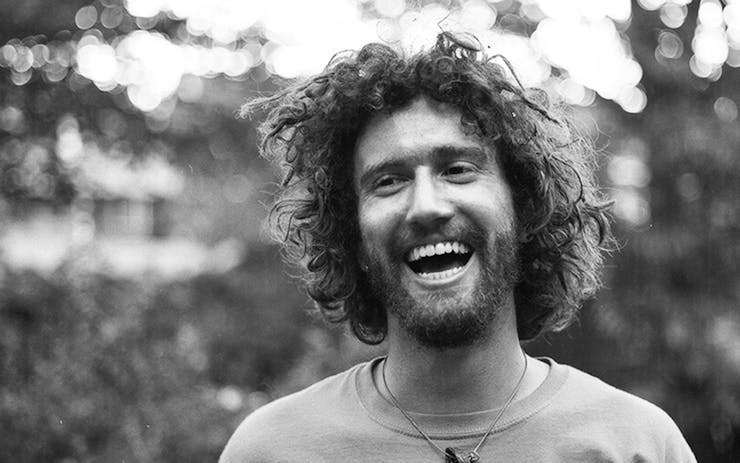Toronto cannabis lawyer Jack Lloyd looks more like a roadie for the Grateful Dead than a trial lawyer—a fact that’s helped him earn the trust of his clients, who know he’s equally at home in either world and that his brain (not his hair) is what’s on display when he represents high-profile cannabis clients like Marc Emery. With years of tutelage under revered Canadian cannabis lawyer Paul Lewin and a peer group including cannabis-law giants Kirk Tousaw and John Conroy (with whom he volunteers for NORML), Jack Lloyd is destined to become a lion in this brave new world of Canadian cannabis law, as he follows his self-professed goal of helping to “legalize cannabis through the judicial branch of the government in Canada.” When I reach him on the phone, he’s running to catch a streetcar, sweating in his suit after a long day in court, listening to Hot Water Music, and headed home to tend his garden.
Cannabis law isn’t for everyone—how did you come to it?
I come from the world of publishing. I‘m an editor at a publishing company called Green Candy Press, which is the largest publisher of books about the cannabis plant in the world. Law school is very, very expensive. I have a unique focus to my legal practice, and if an individual wants to specialize as I have, they cannot carry a lot of debt after their education. I worked a lot of different jobs to pay for law school—I was a landscaper and a busboy—and as a result I’m able to practice law the way I like.
How does your publishing work relate to your law work?
I’m a cannabis legalization activist and my editorial work has really been focused on sharing knowledge about the cannabis plant. My work as an editor is essentially about helping people tell their stories about the cannabis plant in an effective way. My legal work is just a different form of advocacy for a really large community of people who have been unfairly criminalized for a long period of time. Hopefully through hard work and perseverance we can correct a historical wrong by legalizing cannabis.
What will you be looking for during the yearlong countdown to Canadian legalization?
Local flavour in regard to cannabis offenses. You already see this to a lesser extent on a provincial level, with provincial or municipal governments making decisions in regard to how they want to deal with cannabis, cannabis venues, cannabis consumption, and even cannabis sales—I am thinking particularly of British Columbia. Over the next year provincial governments are going to be thinking very seriously about how they want to regulate this type of activity.
What advice would you give to on-the-ground activists?
For the activist community I would recommend that they start speaking with their local government because never before have we had such a clear opportunity to voice our opinions about how we think this regulation should occur and what people want. Essentially people have voted with their feet as to how they want regulation to occur and it remains to be seen whether provincial governments accept that or whether they want to implement a different scheme. There may well be a variety of interest groups vying for a voice in that conversation. I think that is quite unique in that activists can get their point across in this liminal territory between the old system and the ne— these are definitely interesting times.
What do you hope will be achieved by cannabis legalization in Canada?
From the standpoint of simple cannabis charges, I would like to see simple possession of cannabis charges evaporate. Currently they still exist but could be generally dealt with by something called “diversion” in most courts. I think the time is right for a form of judicial activism in which the judicial branch of government and officers of the court, i.e. lawyers and judges, come to some sort of agreement that simple possession of cannabis is no longer constitutionally viable and therefore not a criminal offense. I’ve described it to people with this metaphor: “You don’t want to be the very last person to get shot just before the armistice.” Someone is going to be the very last person convicted of a cannabis offense and that is both heartwarming and sad all at the same time.
In a utopian world where your cannabis activism services are no longer needed, where would we find you?
Right now there is a group called MAPS (Multidisciplinary Association for Psychedelic Studies). It’s a society that advocates for the use of certain hallucinogens for therapeutic purposes. They have a broad mandate but I’m thinking of a really interesting study that they’re doing in regards to psilocybin mushrooms as an effective treatment for a variety of mental health issues. I think that some really great legal work could be done in that space, and I’d be happy to do it.
Where will you be July 1, 2018?
Hopefully not in bail court!
Any last words?
I work with Tousaw Law Corporation and if folks are interested they can contact us to chat about their legal issues.





